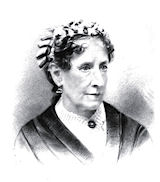(from E. F. Lusk To Horace Barnard)
Norwich, Sept. 10th, 1862.
Dear Horace:
I received your letter on Sunday morning. I am satisfied that you will manage the business intrusted to you as well as may be during these horrible times, and hope for a better future. I am sad, sick, despairing. Fifteen months ago I gave my son, my only one, to serve his country as he best might. How faithful he has been his General has testified. He has fought in five large battles and in ten or twelve small ones, not a day’s respite, always at the wheel, full of hope, full of energy, sacrificing home, University honors in Berlin, all that made life lovely, to serve his country in her hour of need. Look at the result. Gen. Stevens, his good friend, the best, the bravest, the truest patriot, the courageous soldier, the great man, is sacrificed, while blundering little men who can never fill his place are for political reasons reaping honors. My son is still performing the duties of an Assistant Adjutant-General, trying, as he says, to keep the concern in motion, but with gloomy prospects when the command passes into new hands. His regiment, the 79th, is reduced from its proud array of 1000 men to a regiment of cripples — only 230 men are left, wholly, I fear hopelessly, demoralized. Oh, my God, has he not one friend who can lift a hand to help? Are his services of no value? Loyal as I have ever been, loyal as I am still, now that his kind appreciative General is gone, I would, if I could, withdraw him from the army, where the faithful servant is unnoticed, and the scheming politician receives the honors.
I have received two letters since the battles on the Rappahannock, in all of which he was engaged, through which, my God, “The God of the widow,” preserved him alive. He was “Acting A. A. General,” full of love and admiration for his General, and honored in return by his loving confidence. I now quote from his letter regarding his last battle: “Whenever anything desperate was to be performed, Kearny and Stevens were always selected, with this difference, though, that Stevens was rarely credited with what he did, while Kearny’s praises were very properly published. On Monday’s fight, the General’s son and I were walking together in the rear of the 79th Regiment, when Capt. Stevens was wounded. Finding that he was able to move off without assistance, I continued to follow the Regiment. Soon the General came up on foot. ‘Have you seen your son?’ I asked him. ‘Yes,’ said he, ‘I know that he is wounded,’ and then added, ‘Capt. Lusk, I wish you would pass to the left of the line, and push the men forward in that direction.’ I did as I was ordered, and on my return found the Gen. had been killed and the troops badly slaughtered. The General you have read was shot while holding the flag of the 79th Regiment in his hand. There were five shot holding the same flag in about 20 minutes time. I found the sixth man standing almost alone at the edge of some woods, still clinging hopelessly to the colors. I drew him back to the crest of a hill a couple of hundred yards, and gathered a few of the 79th about it. Kearny then came riding up, and asked the name of the little band. On being told, he said, ‘Scotchmen, you must follow me.’ They told him they had not a round of ammunition left. ‘Well,’ said he then, ‘stand where you are, and it may be you will be able to assist my men with the bayonet.’ The soldierly form moved on and it, too, soon was dust.
Stevens was a great man, and Kearny a courageous soldier.”
If these incidents would interest the public, and Mr. Godwin is inclined to publish them, I have no objection; you may do as you like. I wish the country knew all that occurred on those battlefields. The truth is beginning to dawn. I have written a long letter. Will is still at the Headquarters of the 1st Division, Reno’s Command. He shudders at the thought of returning to his Regiment. The General and all the best friends of the 79th felt that it had suffered so much from constant active service, was so terribly decimated, and so demoralized from the loss of officers, it should be recalled from the service. If my son has friends who can help, beg them to think of him now—his General killed, his intimate friends wounded, Major Matteson, his tried friend, dead of typhoid fever—his cup is more than full, and my heart is ready to burst with its grief for him.
Well, good-bye; give much love to all who care for us, and believe me,
Truly yours,
E. F. Lusk.



